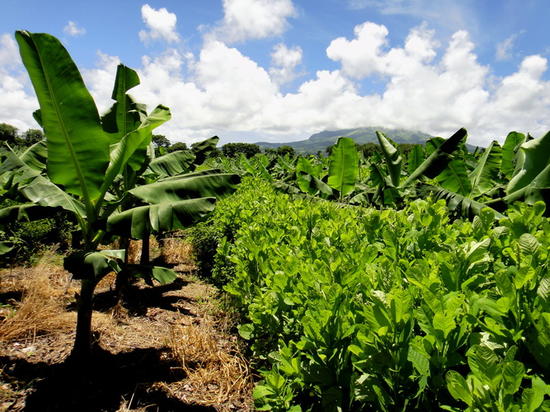Overall symposium theme
The main objective of the symposium is to take stock of current scientific knowledge and technical advances in the deployment of agroecological approaches in banana production, and how these can contribute to the development of innovative sustainable production systems. Participants will share the results of their scientific research on bananas, along with the technical, strategic or organizational options they implement at the field scale, the farm level or at supra scales (region, territory) to promote agroecological approaches and provide added value for establishing more sustainable banana agroecosystems.
Global agriculture has grown 2.5–3 times over the last 50 years. This has allowed food production to keep pace with human population growth so that, overall, there are still enough calories produced per capita. However, progress toward reducing hunger is variable across the world, and millions of people remain food insecure. Moreover, food consumption and production patterns and unsustainable practices are among the main causes of pressure on the environment. Fundamental changes in the ways food is produced, processed, transported and consumed are indispensable for achieving sustainable development.
There is an increasing societal demand for more sustainable food production systems, based on agroecological principles. Agroecology is a multi-disciplinary science studying interactions between plants, animals, humans and their environment within agriculture-based systems. It integrates knowledge from agronomy, ecology, sociology and economics, by applying and adapting them to local and environmental conditions. It is at the basis of a global management system for a multi-functional and sustainable agriculture valorizing agroecosystems, optimizing production and minimizing external inputs, especially those derived from fossil energy (pesticides and mineral fertilizers). Agroecology takes into account four system properties of agroecosystems: productivity, stability, sustainability and equitability. As opposed to disciplines that are concerned with only one or some of these properties, agroecology sees all four properties as interconnected and integral to the success of an agroecosystem. Agroecologists study these four properties through an interdisciplinary lens, using biophysical sciences to understand elements of agroecosystems such as soil properties and plant-insect interactions, as well as using social sciences to understand the effects of farming practices on rural communities, economic constraints to developing new production methods, or cultural factors determining farming practices.

